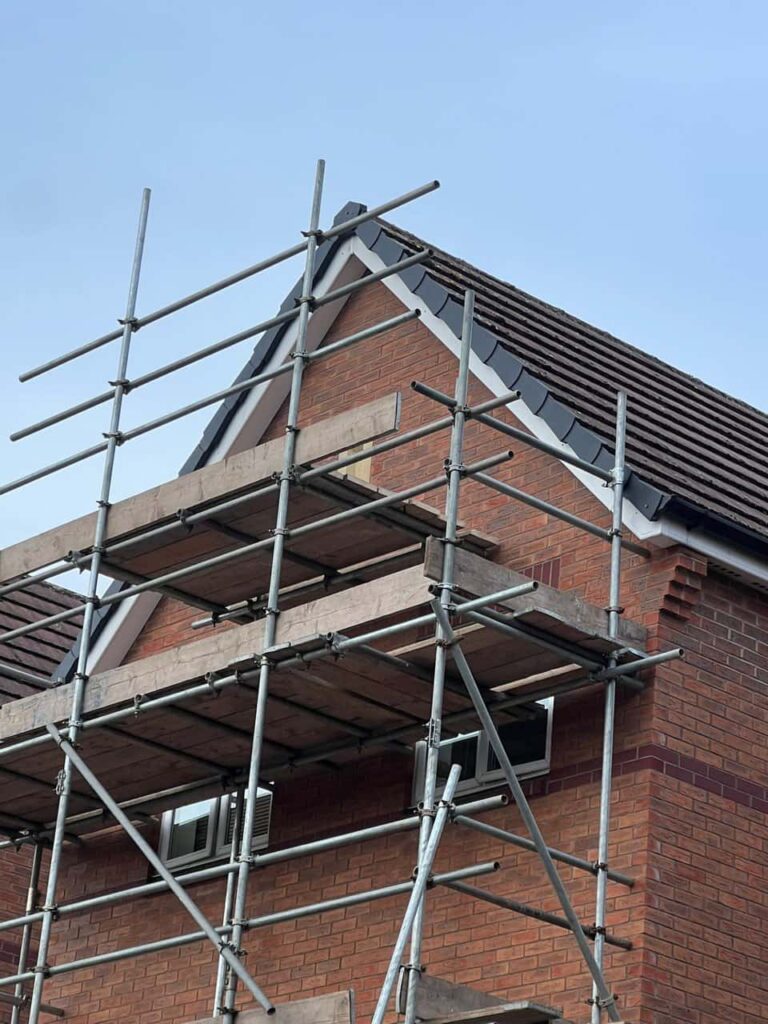Introduction
A leaking roof is more than just a structural problem—it can lead to serious health risks inside a home. One of the most concerning consequences of a persistent roof leak is the growth of mould. When water seeps into walls, ceilings, and insulation, it creates the perfect conditions for mould to thrive, leading to damage, unpleasant odours, and potential respiratory issues.
For homeowners in Hornsea, East Riding of Yorkshire, addressing roof leaks promptly is essential to preventing mould growth and safeguarding indoor air quality. TRP Roofing Hornsea provides expert roofing services to identify and repair leaks before they cause lasting damage.
Key Takeaways
- Roof leaks create damp conditions that encourage mould growth inside homes.
- Mould can lead to respiratory issues, allergies, and structural damage.
- Early detection and repair of roof leaks help prevent costly remediation.
- Proper ventilation and insulation reduce the risk of moisture build-up.
- TRP Roofing Hornsea provides professional roof repair services in Hornsea, East Riding of Yorkshire.
How Roof Leaks Lead to Mould Growth
Mould thrives in damp, humid environments where organic materials like wood, plaster, and insulation provide a food source. A leaking roof introduces unwanted moisture into these materials, creating the perfect breeding ground for mould spores to multiply.
1. Water Infiltration and Damp Build-Up
When water enters a property through a damaged roof, it often goes unnoticed until visible signs of damage appear. Moisture can spread through:
- Ceilings and walls – Causing discolouration, peeling paint, and weakening structures.
- Attics and insulation – Trapping moisture in dark, warm spaces ideal for mould growth.
- Flooring and foundations – Leading to rot and compromising structural integrity.
2. Ideal Conditions for Mould Growth
Mould spores are always present in the air, but they only become a problem when moisture allows them to settle and spread. The key conditions for mould to develop include:
- Persistent moisture from leaks or condensation.
- Poor ventilation that prevents moisture from escaping.
- Organic materials like timber, drywall, and insulation that provide nutrients for mould.
3. Hidden vs Visible Mould
Some mould growth is obvious, appearing as black, green, or brown patches on walls and ceilings. However, mould can also grow unseen behind walls, under floorboards, or in attic spaces. If a musty odour is present but no visible mould is detected, it may be hiding in concealed areas affected by roof leaks.
Health Risks Associated with Mould Growth
Prolonged exposure to mould can cause a range of health problems, particularly for individuals with respiratory conditions, allergies, or weakened immune systems.
1. Respiratory Issues and Allergies
Mould spores can trigger respiratory problems, including:
- Coughing and wheezing.
- Nasal congestion and throat irritation.
- Aggravation of asthma symptoms.
- Skin and eye irritation.
2. Long-Term Health Effects
Long-term exposure to mould in indoor environments has been linked to more serious health conditions, including chronic sinus infections and increased sensitivity to allergens.
How to Prevent Roof Leaks and Mould Growth
Preventing mould starts with maintaining a dry and well-ventilated home. Addressing roof leaks early and ensuring proper ventilation are key to reducing moisture build-up.
1. Regular Roof Inspections and Maintenance
Routine roof inspections help identify and repair minor issues before they become major leaks. Professional roofers check for:
- Missing, cracked, or loose roof tiles.
- Damaged flashing around chimneys and skylights.
- Blocked gutters that can cause water to pool.
2. Improving Attic Ventilation
A well-ventilated attic prevents condensation and reduces the chances of mould developing in insulation and roof timbers. Installing roof vents and ensuring proper airflow helps keep the attic dry.
3. Fixing Leaks Promptly
Small leaks can quickly become bigger problems if left unaddressed. Prompt roof repairs prevent water damage, mould growth, and costly structural repairs.
For homeowners in Hornsea, East Riding of Yorkshire, TRP Roofing Hornsea offers professional leak detection and repair services to protect properties from moisture damage.
Conclusion
Leaking roofs and mould growth go hand in hand, making roof maintenance essential for protecting both a home’s structure and its occupants’ health. Identifying and fixing roof leaks early prevents damp conditions that allow mould to thrive, reducing the risk of respiratory issues and costly repairs. Regular inspections, proper ventilation, and professional roofing services are key to maintaining a dry and mould-free home.
For expert roof repair and maintenance in Hornsea, East Riding of Yorkshire, TRP Roofing Hornsea provides high-quality solutions to keep homes safe from leaks and moisture damage. Contact us today for an inspection and protect your home from the risks of mould growth.
Call us on: 01964 770 376
Click here to find out more about Roofing Hornsea
Click here to complete our contact form and see how we can help with your roofing needs.

